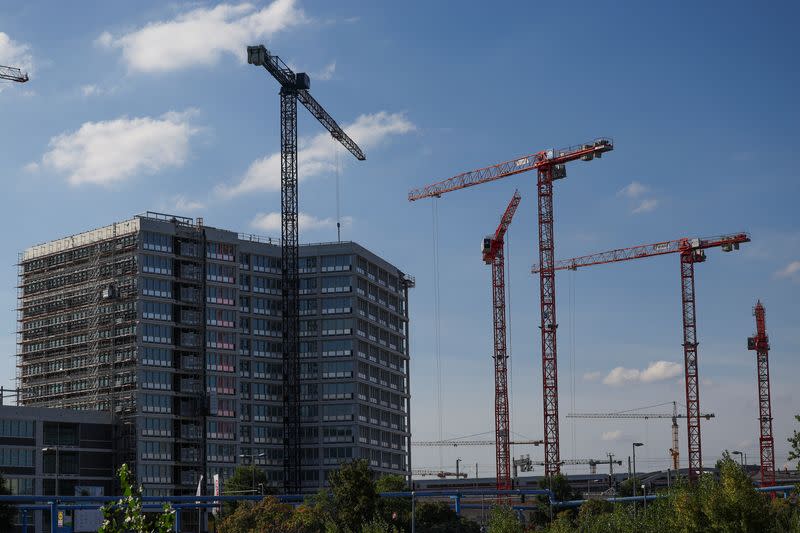German builders demand billions in subsidies to stem housing crisis

BERLIN (Reuters) - A plunge in new housing construction in Germany threatens to derail the country's economic recovery and worsen political divisions, industry groups warned, calling for 23 billion euros ($24.70 billion) in annual subsidies to address the crisis.
The subsidies should be used to build 100,000 social housing units and 60,000 new affordable homes to be able to accommodate an influx of workers, avoid pushing people into poverty and create new jobs in the economically key sector, they said on Thursday.
"If nothing happens now, Germany will experience a boomerang effect from the housing crisis that will hit the entire economy hard," said several industry associations in a joint statement.
They also called for building standards to be relaxed to help reduce costs and speed up construction.
The real estate sector was a bedrock of Germany's economy for years, accounting for roughly a fifth of output and one in 10 jobs. Fuelled by low interest rates, billions were funnelled into property, which was viewed as stable and safe.
Now, a sharp rise in rates has put an end to the run, tipping developers into insolvency as deals freeze and prices fall.
The DIW economic institute said on Thursday it expects a nominal decline of 5.4% in residential construction volume this year, which would mean a drop of almost 5 billion euros in tax revenue for the state alone compared with the previous year.
($1 = 0.9311 euros)
(Reporting by Klaus Lauer, Writing by Rachel More and Miranda Murray; Editing by Devika Syamnath)

 Yahoo Finance
Yahoo Finance 